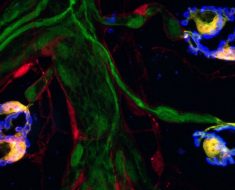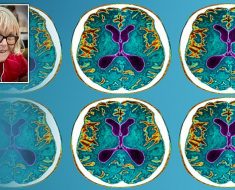Heart rate changes with a person’s activity level. During intense physical exertion, the heart has to pump faster and harder, so the rate goes up.
In most adults, a slow heart rate is below 60 beats per minute (bpm). However, athletes and people who are asleep may have a heart rate of below 60 bpm.
Symptoms

The primary symptom of bradycardia is a slow heart rate. Some people have no other symptoms.
Other people do experience symptoms. In these cases, a slow heart rate is more likely to be due to a serious issue.
Some common bradycardia symptoms include:
- feelings of exhaustion and weakness
- fainting or dizziness
- confusion
- shortness of breath
- trouble breathing when working out
When a serious medical condition causes bradycardia, and a person does not seek treatment, more severe symptoms may appear.
Those include:
- cardiac arrest, which means the heart stops
- chest pain
- low or high blood pressure
- heart failure

Some people have only moderate bradycardia. Others only experience occasional bradycardia.
Although it is vital that anyone with a slow heart rate seeks medical guidance, not everyone will require treatment. When bradycardia causes no other symptoms, and when a person does not have an underlying condition, a slow heart rate may be a harmless or minor issue.
The heart rate tends to decline with age, which means older people may experience episodes of bradycardia. While this is typical, it still warrants investigation by a doctor.
Exercise strengthens the heart. Athletes, especially those who engage in intense cardiovascular activity, tend to have more efficient hearts. This may slow their pulse because their heart does not have to pump as hard or as fast to supply blood to the rest of their body.
Some medical conditions may also cause a slow heart rate.
These include the following:
Problems with the heart’s natural pacemaker
The heart’s natural pacemaker, or sinoatrial node, helps regulate heartbeat. Problems affecting this can cause a person’s heart to beat unusually slow or fast, which doctors call tachycardia.
A condition that doctors call sick sinus syndrome refers to problems with the natural pacemaker. Typically, another heart health problem, such as scar tissue in the heart, complications of diabetes, or coronary artery disease, causes these problems.
Other heart electrical issues
The heart communicates by sending electrical signals. For example, one chamber of the heart sends electrical signals to another, telling it how and when to squeeze blood into the next chamber.
The pacemaker helps regulate this electrical system. If the heart is not able to send the correct electrical signals, due to a blockage or heart disease, it can cause bradycardia.
Complete heart block is a type of electrical issue that makes it impossible for electrical signals to travel from the atria — the top two chambers of the heart — to the ventricles, which are the bottom two chambers. In complete heart block, the top two chambers may have totally different rhythms to the bottom two.
Metabolic problems
Some metabolic disorders can slow the heart rate. One of the most common is hypothyroidism, in which the thyroid does not produce enough thyroid hormones.
Hypothyroidism can affect the health of the blood vessels, which may slow the heart rate. People with hypothyroidism may also have a high diastolic blood pressure — a diastolic measurement identifies the pressure in the arteries between heartbeats, and is the bottom number on a blood test reading. A person has a high diastolic blood pressure if the test shows a reading above 80.
Thyroid disorders are common and may affect young and otherwise healthy people. Between 4 and 10 percent of people in the United States have hypothyroidism.
Heart disease
Damage to the heart from congestive heart failure, coronary artery disease, previous heart attacks, and other heart problems may affect the heart’s electrical system, making the heart pump more slowly and less effectively.
Heart medication
Some medications, including medications for heart disease and high blood pressure, may lower heart rate. Beta-blockers, which doctors prescribe for a rapid heart rate and some other heart conditions, may also slow heart rate.
People taking a new medication who experience symptoms of bradycardia should contact a doctor.
Oxygen deprivation
Doctors use the term hypoxia when the body cannot get enough oxygen, which may slow down the heart rate.
Hypoxia is a medical emergency, and it can occur when a person is choking or having a severe asthma attack. Chronic medical conditions, such as chronic obstructive pulmonary disease, may also cause hypoxia.
When hypoxia lowers the heart rate, it is essential to treat the underlying cause.

When a baby has a low pulse, a parent or carer should take them to the emergency room.
Adults and children who have a low pulse and experience severe symptoms, such as chest pain or fainting, should also go to the hospital.
A person should see a doctor for bradycardia when:
- they experience an unexplained change in heart rate that lasts for several days
- they have bradycardia and other heart health risk factors, such as diabetes or smoking
- they have heart disease and bradycardia
- they experience bradycardia and other symptoms, such as fainting spells
- they experience episodes of bradycardia and tachycardia

Treatment options
A doctor may not always need to treat a slow heart rate. However, when a slow heart rate causes serious health problems or when heart disease slows the heart, it is essential that people receive treatment.
An artificial pacemaker, which is an electrical device that a doctor inserts into the heart to promote regular rhythms, can help.
Depending upon the cause, a doctor might also recommend:
- changing heart medications
- taking medication to treat thyroid or other metabolic disorders
- making lifestyle changes, such as eating a low-fat diet, doing more exercise, or quitting smoking
- monitoring heart rate or blood pressure frequently

Takeaway
Heart disease is the leading cause of death in the U.S., accounting for 1 out of every 4 deaths. It is crucial that a person takes any changes in heart health, blood pressure, or pulse seriously.
However, a slow heart rate is not always a reason for concern. In many cases, a slow heart rate is merely a variation of normal. It may even be a sign of heart health and indicate good levels of fitness.
Only a doctor can evaluate an individual’s cardiovascular risk factors. People should see a doctor for guidance and reassurance.
Source: Read Full Article





